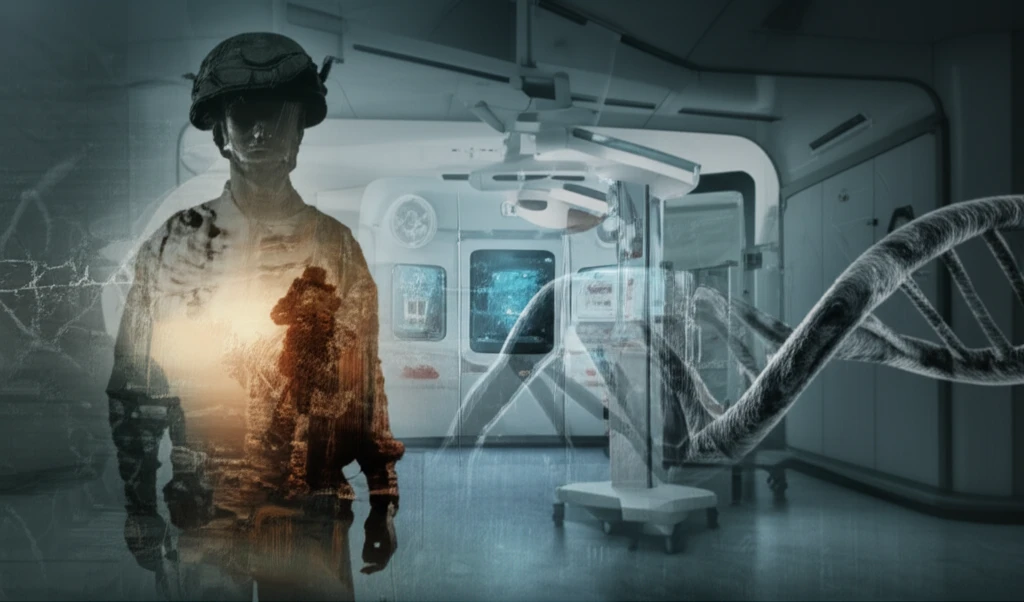
Decoding Military Medicine: How Research and Innovation Shape Future Healthcare
"Explore the forefront of military medicine, where cutting-edge research and development are revolutionizing healthcare for service members and beyond."
Military medicine stands at a critical juncture, drawing upon a decade of intense combat medical experience to redefine its approach. The urgent need for balanced medical research and development is paramount, ensuring that future healthcare capabilities align with the evolving demands of modern warfare. This evolution is guided by the Joint Capabilities Integration and Development System and realized through the Defense Acquisition System, emphasizing the exploitation of medical research to drive modernization.
The Military Health System Research Symposium (MHSRS) serves as a cornerstone in this endeavor, reflecting the comprehensive scope of medical research and development within the Military Health System (MHS). From addressing capability gaps identified in Iraq and Afghanistan to anticipating the medical needs of future military operations, MHSRS plays a vital role in shaping the trajectory of military medicine.
The 2015 MHSRS encompassed a wide array of topics, covered in 28 breakout sessions, reflecting the diverse investments in strategic partnerships and global health engagement. These sessions focused on both combat and noncombat medical missions, emphasizing innovative research and development to enhance the life cycle of service members. Each year, MHSRS gains prominence as a premier scientific forum, integrating evidence-based practices and technologies into a dynamic learning healthcare system.
How MHSRS Fosters Innovation in Military Healthcare

The Military Health System Research Symposium (MHSRS) is instrumental in fostering innovation by creating a collaborative environment where healthcare providers, scientists, engineers, and patients actively participate in the generation of knowledge. This collaborative approach facilitates the identification of trends in health and illness, the testing and validation of best practices, and the assessment of the impact of practice changes.
- Knowledge Sharing: MHSRS facilitates the dissemination of cutting-edge research and innovative practices through presentations, workshops, and poster sessions.
- Networking Opportunities: The symposium provides invaluable networking opportunities, enabling collaboration and the exchange of ideas among military healthcare professionals, researchers, and industry partners.
- Evidence-Based Practices: By emphasizing evidence-based practices, MHSRS promotes the adoption of the most effective and efficient medical interventions, ensuring the highest standards of care for service members.
- Technology Integration: MHSRS showcases the latest technological advancements in military medicine, fostering the integration of these technologies into clinical practice and research endeavors.
- Continuous Improvement: The symposium encourages continuous improvement in military healthcare by identifying areas for enhancement and promoting the implementation of innovative solutions.
The Future of Military Medicine: A Collaborative Endeavor
As military medicine advances, it remains essential to foster collaboration among researchers, healthcare providers, and industry partners. By continuing to prioritize innovation, evidence-based practices, and the integration of advanced technologies, the Military Health System can ensure the delivery of exceptional care to service members, both on and off the battlefield. The ongoing commitment to research and development, as exemplified by MHSRS, will drive the modernization of military medicine and improve the health and well-being of those who serve.
